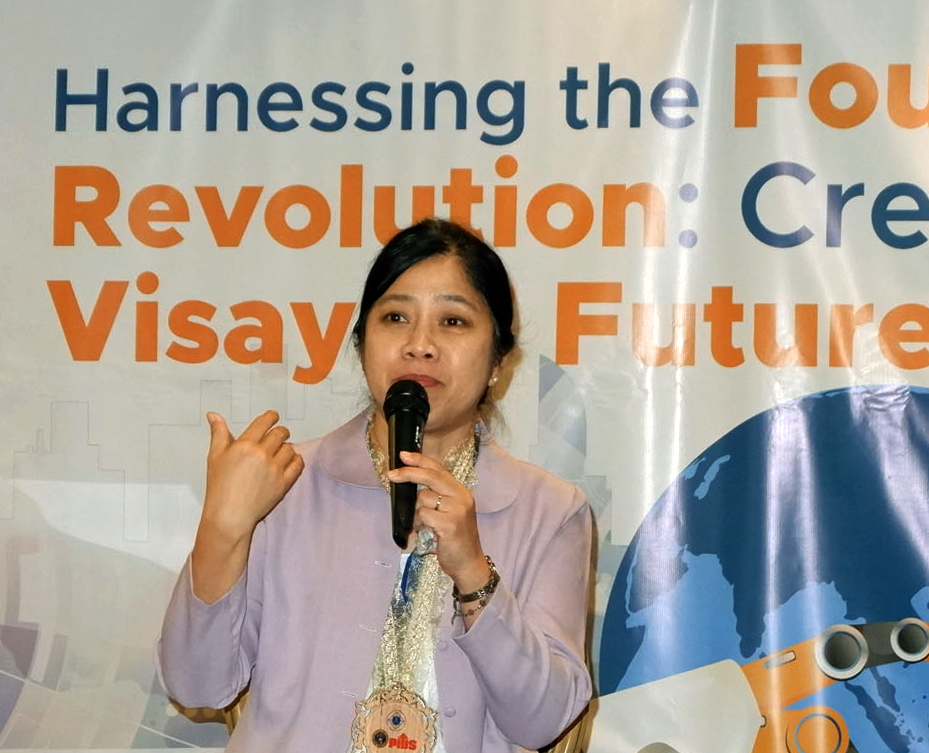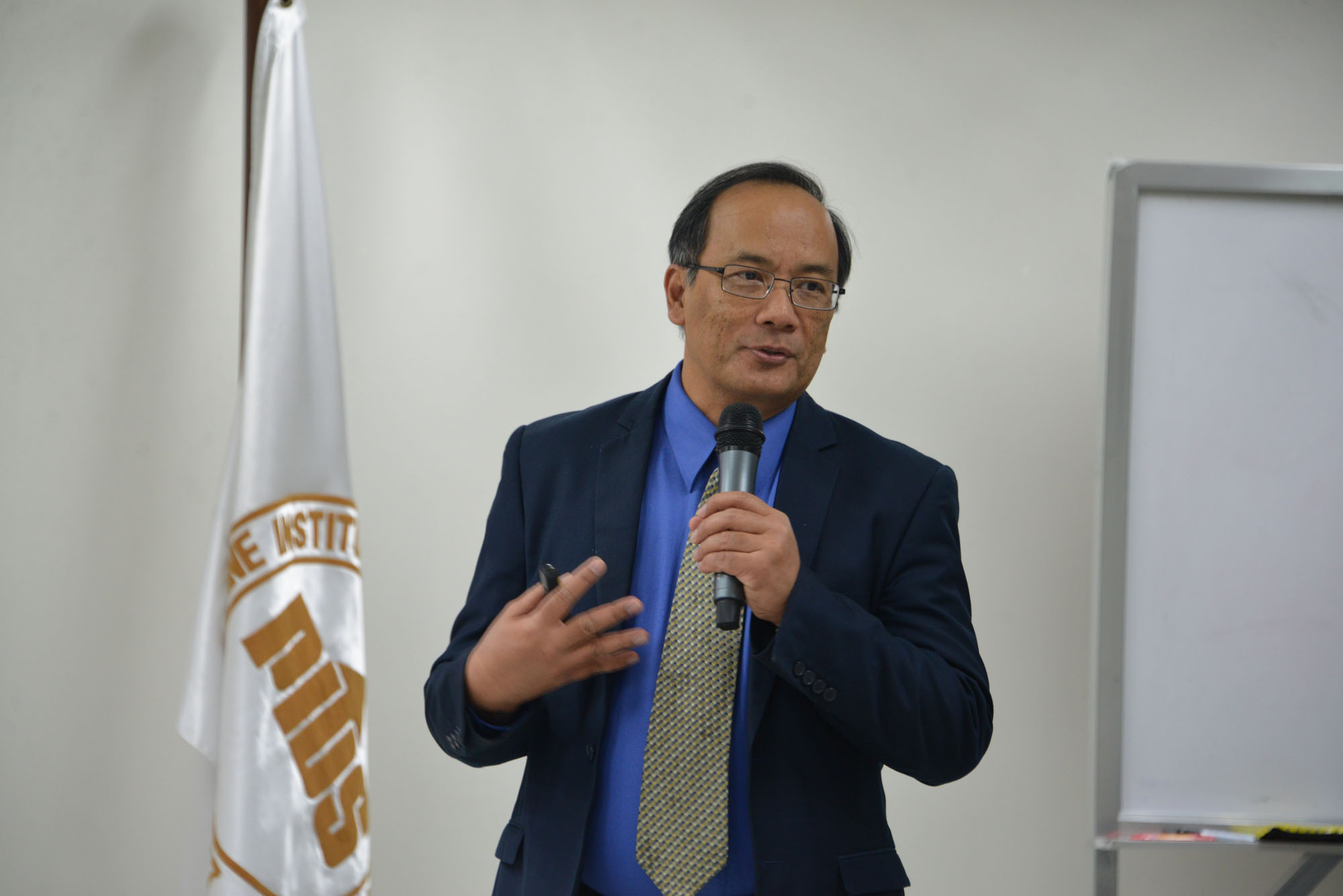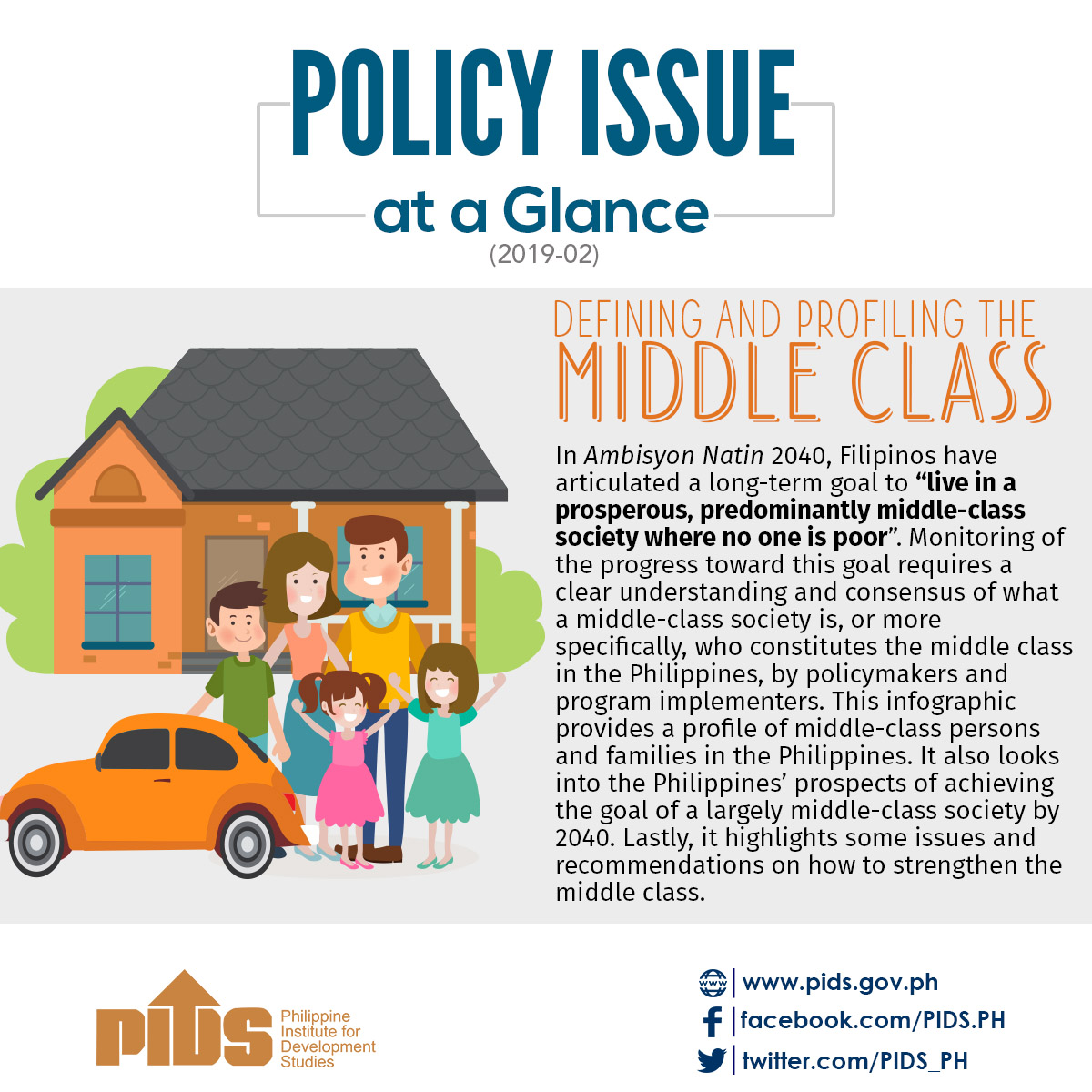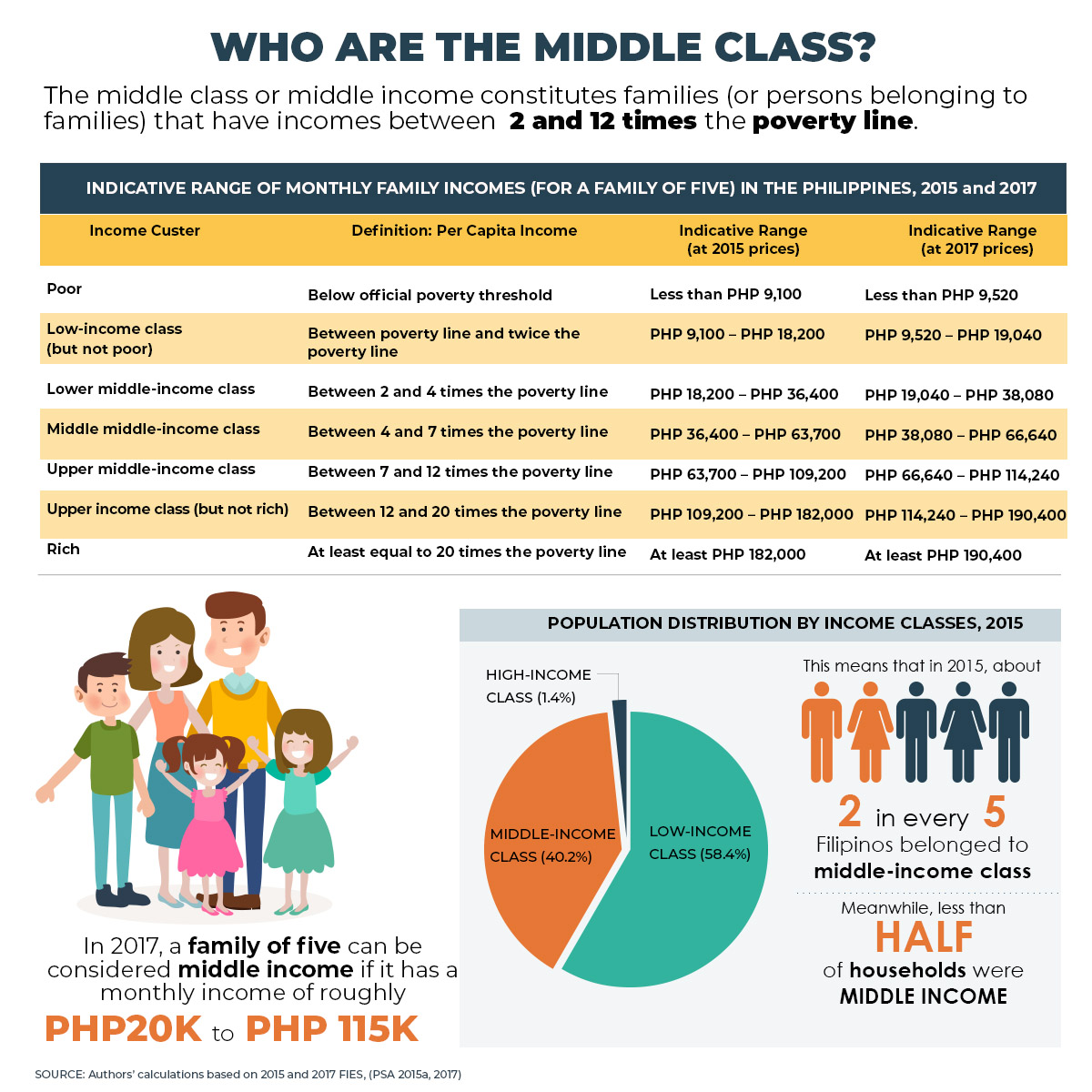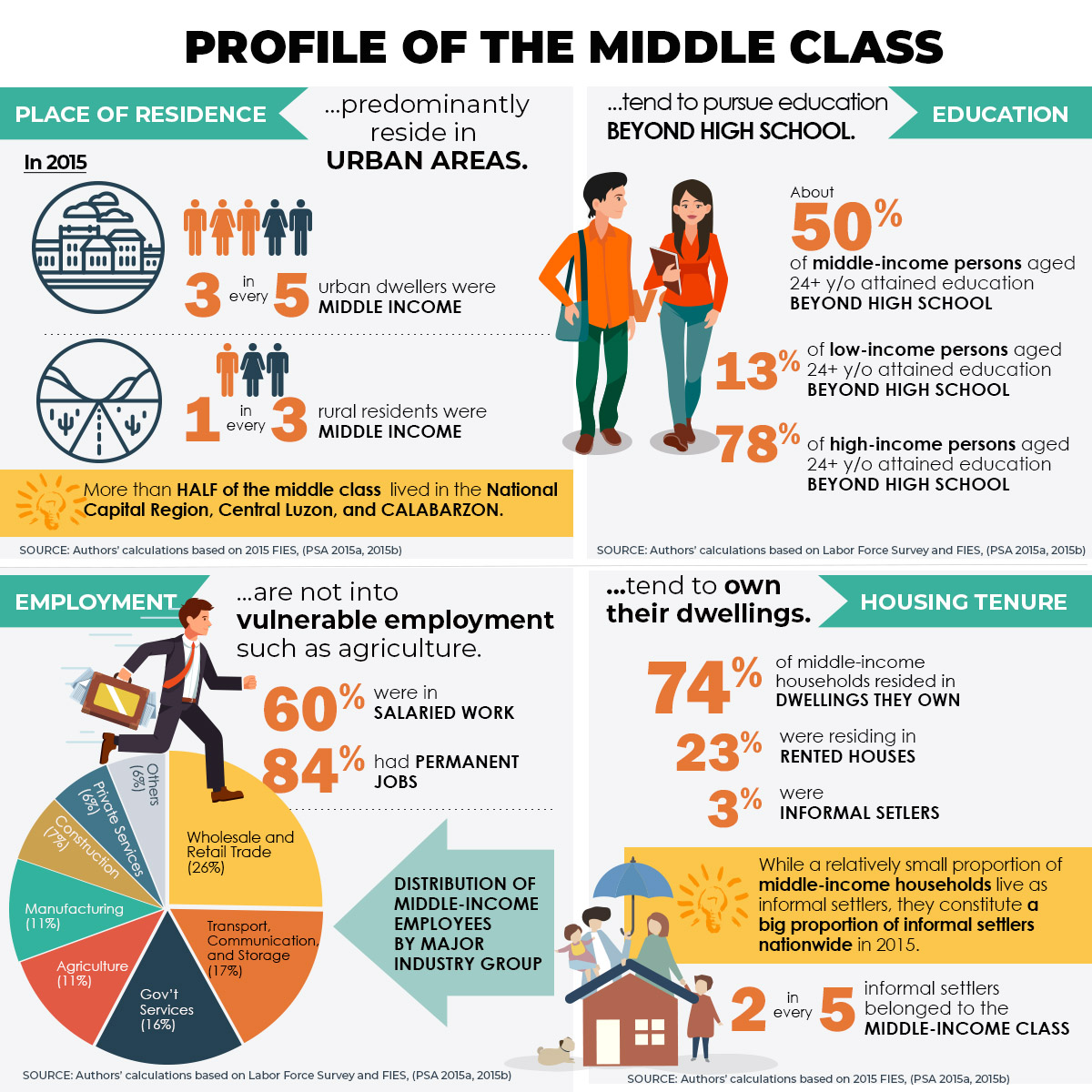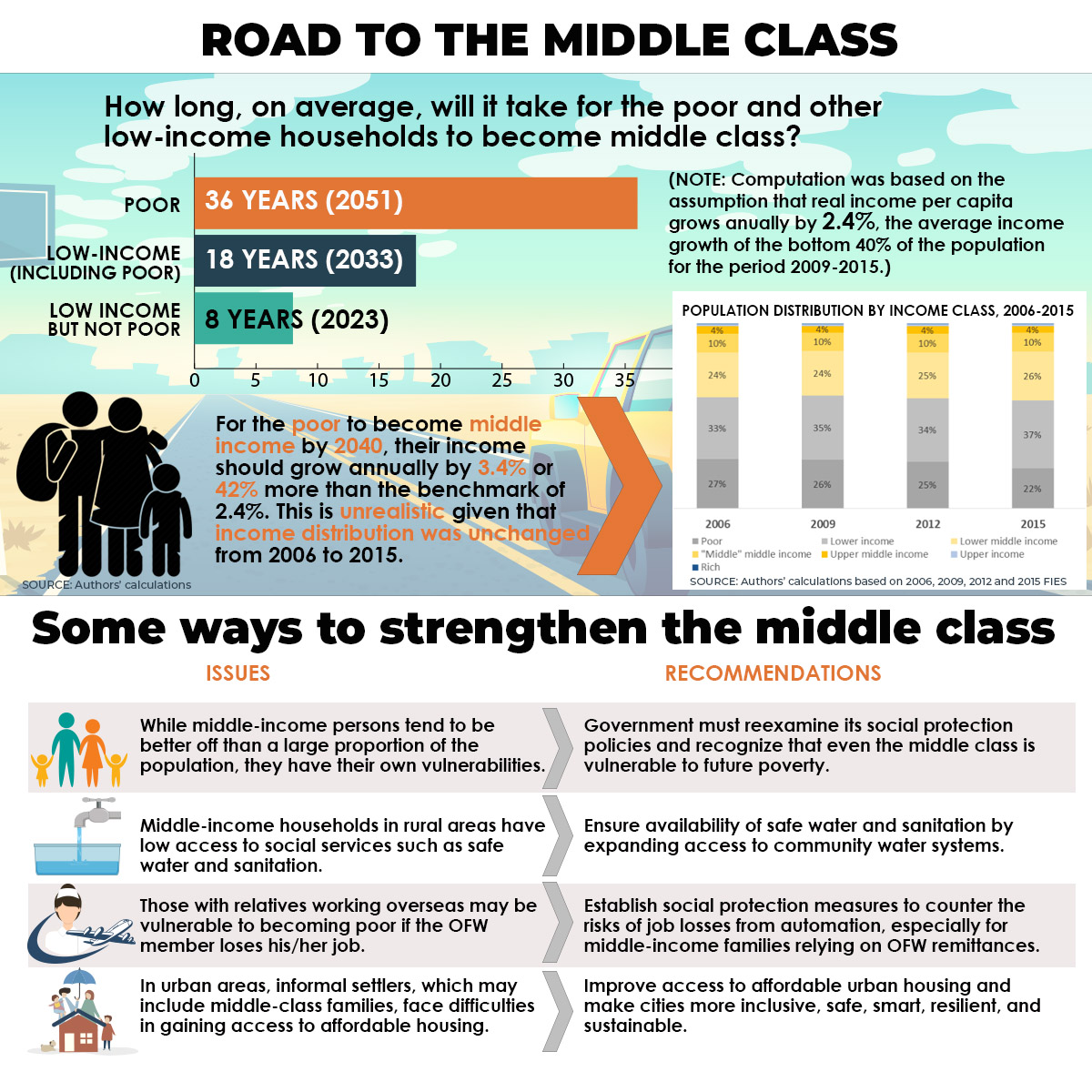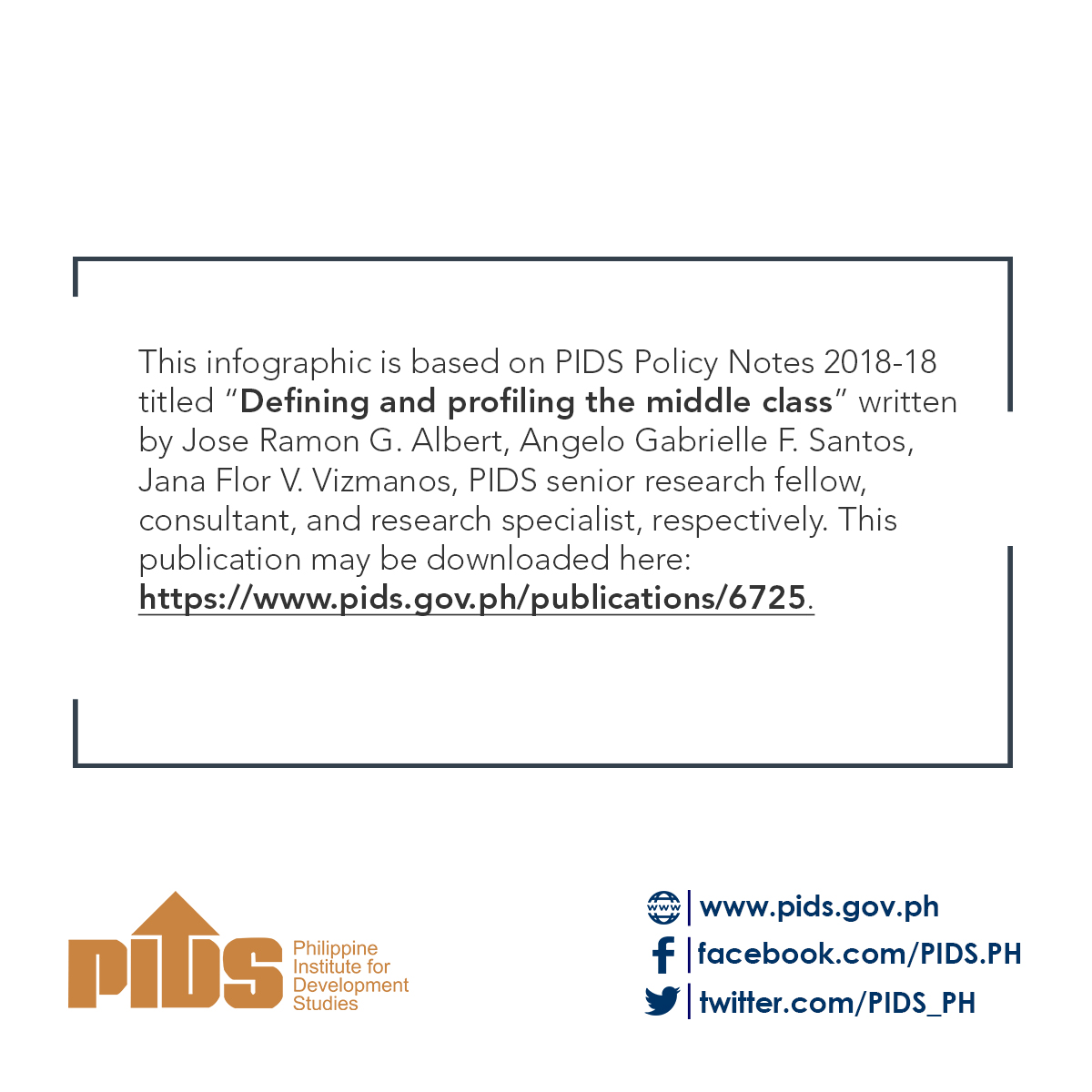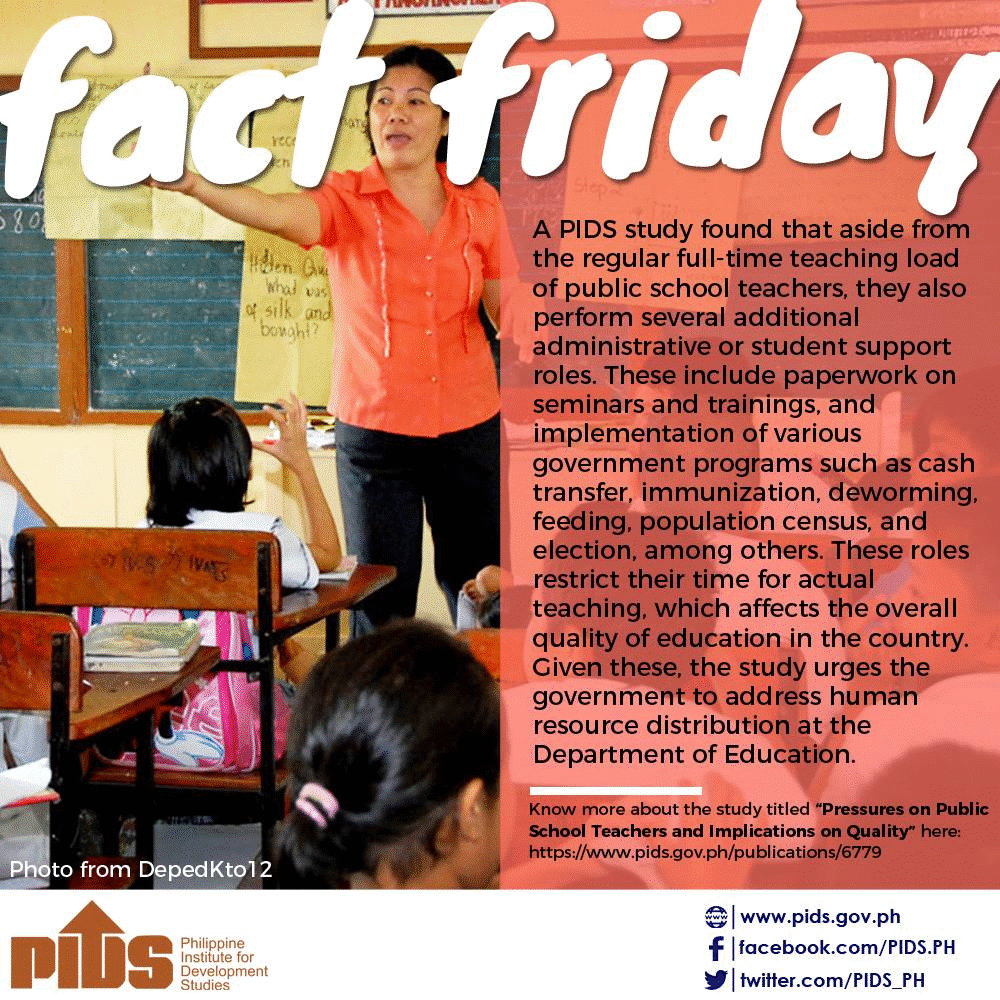Having trouble reading this email? View it in your browser. |
||||
 |
||||
|
||||
DEVELOPMENT RESEARCH NEWS
The first issue of the Development Research News (DRN) for 2019 underscores the need to revisit the country’s regulations in view of today’s fast-evolving technological advances. Its banner story focuses on the importance of viewing regulations as a system to further develop human progress rather than a set of fixed directives. The DRN also features articles looking at the different regulatory issues that restrict growth in the country’s services sector, specifically in the information and communications technology and financial services sectors. Another article looks at expanding local industries as a probable answer to the country’s brain drain situation. Completing this issue is an infographic explaining the middle class in the Philippines—who comprises it, its profile, projections on how long it will take the poor and low-income classes to become middle class, and recommendations to strengthen it. Lastly, starting this year 2019, the DRN will also don a new design and layout to present and deliver our messages more effectively. Click here to download the publication. POLICY NOTES
This Policy Note analyzes the taxes imposed by the Tax Reform for Acceleration and Inclusion (TRAIN) Act and their impact on the liberalization thrusts of the Philippine government for the various sectors of the country, particularly the financial services sector. Among the subsectors included in this study are banking, insurance, and stock market. The study finds that the change in the rates of taxes on financial transactions has increased the friction costs, or the value of the total transaction prices, which now inhibit the smooth flow of trade and investment. In the banking sector alone, taxes have gone up by as much as 100 percent. Meanwhile, increased taxes in the equities market have contributed to the decline in the volume of trade. Given these unintended consequences of TRAIN taxes, the study urges the government to revisit the imposition of taxes on the financial services sector. It argues that while taxes are meant to raise funds for the government, they may discourage investors and businesses, who may turn to other Philippine neighboring countries resulting in revenue losses. Click here to download the paper.
This Policy Note revisits the country's regulation on information and communications technology (ICT), particularly the laws, rules, and regulations governing the ICT sector. Among others, it reveals issues in the implementation of the Department of Information and Communications Technology Act (DICTA), which resulted in incompatible or overlapping functions of the Department of Information and Communications Technology (DICT) with other departments. The law itself, in some instances, provides insufficient guidance on the scope of the department's power. Further, the convergence between and among ICT actors in public and private transactions created conflict in the application of laws and rules, which hinders trade and investment on ICT services. Given these issues, the study recommends the strengthening of DICT's role in ICT matters by defining the extent of its functions in relation to the ICT sector, as defined in DICTA. It also calls for the removal of unnecessary requirements in the establishment and operation of telecommunications and broadcasting services providers, particularly the need for a legislative franchise. It also suggests for the government to consider assigning only one regulator that has authority on all ICT matters. Click here to download the paper. |
April 3, 2019, 8:30AM–2:30PM March 13, 2019, 9AM–4:30PM March 13, 2019, 10:30AM–12NN March 6, 2019, 9AM–4:30PM March 4, 2019, 2PM–5PM -----------------------------------------
The Philippine Journal of Development is a professional journal published by the Philippine Institute for Development Studies. It accepts papers that examine key issues in development and have strong relevance to policy development. As a multidisciplinary social science journal, it accepts papers in the fields of economics, political science, public administration, sociology, and other related disciplines. It considers papers that have strong policy implications on national or international concerns, particularly development issues in the Asia-Pacific region. CLICK HERE for the guidelines in the preparation of articles. Submissions and inquiries may be sent to PJD@mail.pids.gov.ph. |
|||
Tagbilaran City, Bohol—The emergence of new technology in the era of the Fourth Industrial Revolution (FIRe) offers indispensable and powerful tools to boost the tourism industry in Bohol. According to Marietta Gasatan, vice president for external affairs of the Bohol Chamber of Commerce and Industry (BCCI), the digital age has created huge opportunities for those in the tourism business to expand their markets, enhance customer satisfaction, and improve their services. Speaking before a multisectoral audience during the regional forum on “Harnessing the Fourth Industrial Revolution: Creating Central Visayas’ Future Today’’ held recently in Tagbilaran City, Gasatan said tourism in Bohol has already scaled up in terms of technology. READ MORE
Tagbilaran City, Bohol—As the nature of the work environment changes due to technologies designed to automate or streamline processes, two Bohol scientists put forward an innovative solution to equip students with the skills they will need in the digital age, otherwise known as the Fourth Industrial Revolution (FIRe).
The apparent ‘brain drain’ in the Philippines can be addressed by building a science and technology (S&T) innovation ecosystem. The Commission on Higher Education reported in 2016 that the country produces about 120,000 S&T graduates annually. READ MORE | ||||
POLICY ISSUE AT A GLANCE Defining and Profiling the Middle Class In Ambisyon Natin 2040, Filipinos have articulated a long-term goal to live in a prosperous, predominantly middle-class society where no one is poor. Monitoring of the progress toward this goal requires a clear understanding and consensus of what a middle-class society is, or more specifically, who constitutes the middle class in the Philippines, by policymakers and program implementers. This infographic provides a profile of middle-class persons and families in the Philippines. It also looks into the Philippines prospects of achieving the goal of a largely middle-class society by 2040. Lastly, it highlights some issues and recommendations on how to strengthen the middle class.
To view in actual size, visit the PIDS website or the PIDS Facebook page.
FACT FRIDAY Every Friday, PIDS releases nuggets of research results culled from different PIDS studies. Here are the latest #PIDSFactFriday issues. Like us on Facebook for more #PIDSFactFriday issues. |
||||
Need help? Have feedback? Feel free to contact us. © 2018 Philippine Institute for Development Studies.
|
||||
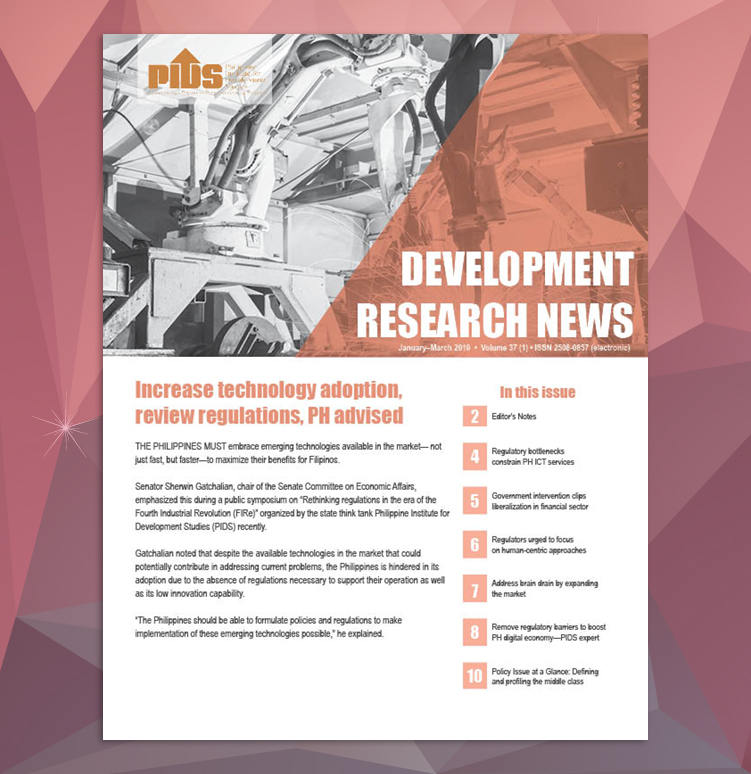
 PN 2019-03:
Taxation in Financial Services
PN 2019-03:
Taxation in Financial Services 
.jpg)

